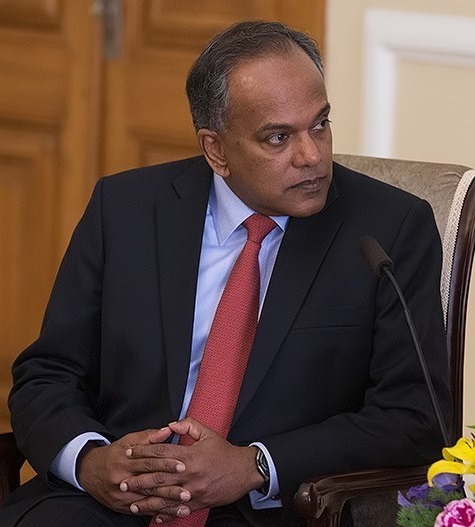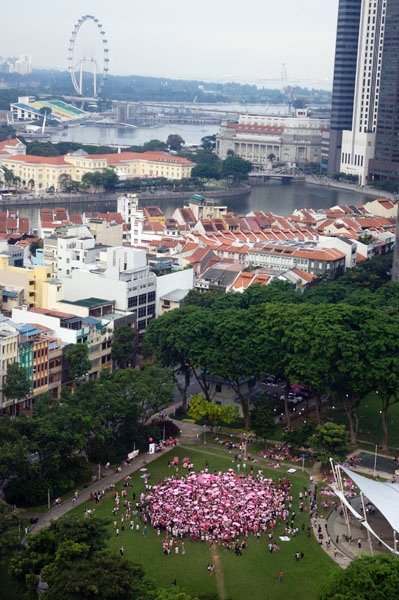by Brian Hioe
語言:
English
Photo Credit: Merlion444/WikiCommons/CC
RECENT EVENTS in Singapore provide a negative object lesson for Taiwan, with public suggestions that the question of whether to decriminalize homosexuality triggered after India moved to decriminalize homosexuality. This draws parallels to two competing referendums in Taiwan on gay marriage, something made possible after amendments to the Referendum Act in December 2017.
One referendum in Taiwan, pushed for by marriage equality advocates, has phrasing which slants towards approving of gay marriage. The other referendum, pushed for by anti-gay groups, has phrasing which slants towards opposition to gay marriage. It presently remains unknown as to how the Central Election Commission (CEC) will rule on these two referendum proposals, both of which have collected enough signatures to meet the benchmarks required to hold them. Namely, given two different forms of phrasing on what would probably be one referendum question on the same issue, it is to be seen how the CEC will rule on the issue.
 Current Singaporean Minister for Law and Home Affairs K. Shanmugam. Photo credit: Tasnim News Agency/WikiCommons/CC
Current Singaporean Minister for Law and Home Affairs K. Shanmugam. Photo credit: Tasnim News Agency/WikiCommons/CC
What is striking about parallels between Singapore and Taiwan was that the complacency of political leaders is what allowed the forces of the political right to gain power in such a manner as to build public opposition against gay marriage. Although Singapore has a large Christian population, probably proportionally larger than that of Taiwan, Singapore had previously been held up as a relatively open place for members of the LGBTQ community, as evidenced in its annual pride event, Pink Dot.
Pink Dot has come under increased scrutiny from Singapore’s Christian right in past years. Nevertheless, it was also the waffling of Singaporean leaders which allowed right-wing forces opposed to gay marriage to gain in force. Singaporean founding father Lee Kuan Yew, whose legacy still continues to dictate Singaporean government policy in many ways, had stated in the past that he believed that homosexuality was natural and genetic, as has opposition prime minister Goh Chok Tong, suggesting that pro-LGBTQ policy was a bipartisan issue for government leaders.
On the other hand, while current Minister for Law and Home Affairs K. Shanmugam has suggested in public comments that the relevant provision of Singaporean law pertaining to homosexuality, S377A, would be up for discussion in the wake of actions by India. But, by contrast, Shanmugam’s actual actions, as indicated in comments made behind closed doors to Singaporean clergy, suggest that he may have merely hoped to intimate that Singapore would be willing to legalize gay marriage while having no real intention to carry out actions which could potentially lead to controversy. It has been raised that Shanmugam likely has little interest in putting gay marriage to a public vote, for example, never mind the question of whether the fundamental rights of a majority should be put up for a vote.
This kind of wishy-washy stance on has been criticized as emboldening opponents of gay marriage while offering false hope to members of the LGBTQ community. But such criticisms can also be laid at the feet of the Tsai administration. Though the Tsai administration may not have been as the current Singaporean government, the Tsai administration did initially strongly suggest support for gay marriage as a way to secure the votes of the LGBTQ community and their allies.
 Pink Dot in 2009. Photo credit: Groyn88/WikiCommons/CC
Pink Dot in 2009. Photo credit: Groyn88/WikiCommons/CC
Yet once elected into office, the Tsai administration has been far less interested in pushing for LGBTQ rights. A 2017 ruling by the Council of Grand Justices ruled that same-sex marriage would need to be legalized by the legislature within two years, but after stronger than expected opposition by Christian anti-gay groups and opposition from within the DPP itself, the Tsai administration has taken no action on the issue and backed away from its previous suggestions. Nonetheless, all the same, the Tsai administration has continued to tout Taiwan as the first country in Asia to legalize gay marriage as a way of distinguishing Taiwan from China.
Comparisons to Singapore on the part of Taiwan do not reflect well. After all, in theory, Taiwan is a democratic government, and its current administration is a progressive one. This should differ from Singapore, which has never been democratic, has seen continuous rule by the Lee political dynasty for most of its history, and which criminalizes freedom of expression. The moral cowardice of the Tsai administration is self-evident, then.

